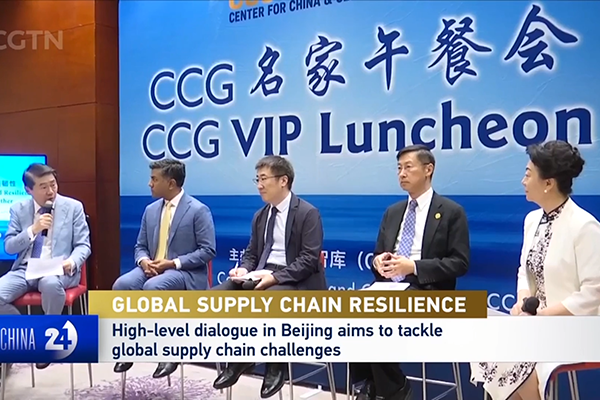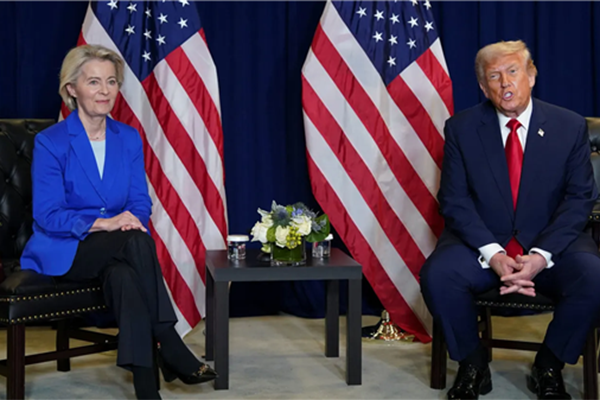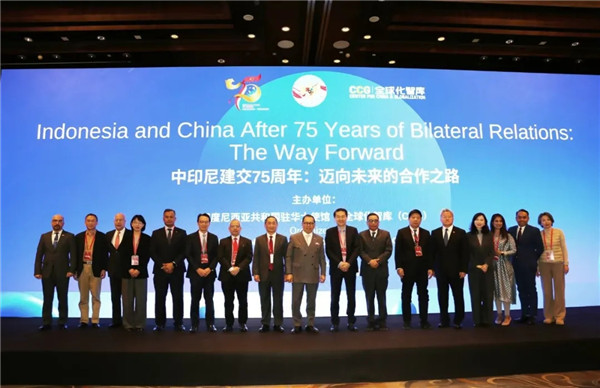It is imperative for int’l community to tackle climate change
May 29 , 2024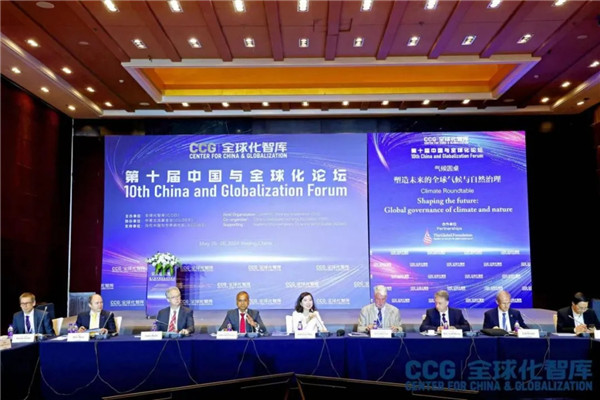 Panelists speak at Climate Roundtable held by CCG on May 26, 2024.
Panelists speak at Climate Roundtable held by CCG on May 26, 2024.
Climate roundtable –Shaping the future: Global governance of climate and nature, co-organized by the Center for China and Globalization (CCG) and Global Foundation, was held on Sunday in Beijing.
Representatives from international organizations, multilateral development banks as well as multinational enterprises voiced out the imperative to address the climate crisis with a concerted endeavor during the Climate Roundtable Session, part of the 10th China and Globalization Forum held by the CCG on the weekend.
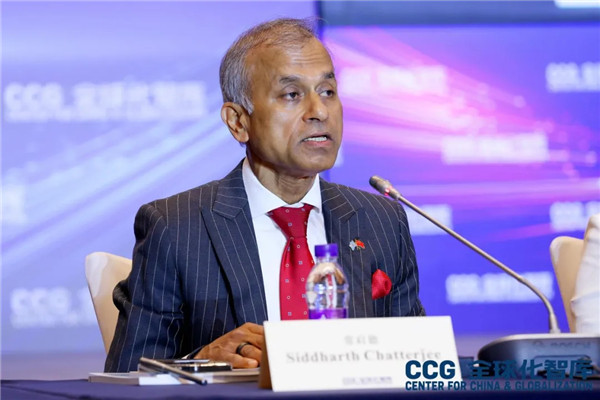 Mr. Siddharth Chatterjee speaks at Climate Roundtable held by the CCG on May 26, 2024.
Mr. Siddharth Chatterjee speaks at Climate Roundtable held by the CCG on May 26, 2024.
UN leads the effort to tackle crisis of climate change, pollution and biodiversity loss
“We face a triple planetary crisis of climate change, pollution and biodiversity loss,” noted Siddharth Chatterjee, UN Resident Coordinator in China, in the Special addresses.
Given China’s pledges for achieving carbon peak before 2030 and carbon neutrality before 2060, the country can go further thanks to new advances, including solar and wind power, energy storage solutions, smart grids, electric vehicles, investments in early warning systems, climate-resilient infrastructure, and more.
“But no single country can tackle climate change alone. Here, international cooperation is vital,” Mr. Chatterjee stressed.
He proposed policy recommendations to accelerate the solution to climate crisis, such as harmonizing regulations and policies across countries, developing national or regional carbon markets, as launched in Hong Kong in 2022, and carrying out joint research and development among countries.
In this regard, Mr. Chatterjee highlighted landmark accords of international cooperation on climate and nature, namely, the Paris Agreement, the Kunming-Montreal Global Biodiversity Framework, and consensus to phase out fossil fuels and support developing countries through a Loss and Damage Fund at COP28 UN Climate Change Conference.
Despite related agreements worldwide, significant challenges linger at the forefront of the cause, such as climate financing, public-private partnerships, strong leadership in sustaining commitments and scarcity of resources for developing countries.
Other representatives from specialized agencies of UN system also shared their views on the climate conundrum.
 Mr. Martin Taylor speaks at Climate Roundtable held by the CCG on May 26, 2024.
Mr. Martin Taylor speaks at Climate Roundtable held by the CCG on May 26, 2024.
Martin Taylor, World Health Organization Representative to China, underscored the huge health impact brought by extreme weather events around the world.
Mr Taylor noted three key priorities — the health community needs to prepare for the future, investing in climate actions has a health benefit, and health impacts reinforce the urgency of taking climate action.
Representatives from UNDP China and UNICEF China respectively underlined biodiversity and climate governance as well as the needs of children, especially the most vulnerable ones.
Multilateral development banks should invest in nature for climate financing
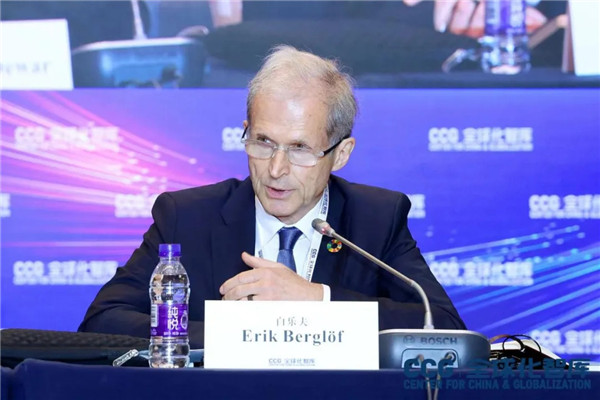 Mr. Erik Berglöf speaks at Climate Roundtable held by the CCG on May 26, 2024.
Mr. Erik Berglöf speaks at Climate Roundtable held by the CCG on May 26, 2024.
As for climate financing, Erik Berglöf, Chief Economist of the Asian Infrastructure Investment Bank (AIIB), discussed how we can use the full potential of nature to deliver services to us, maintaining multilateral development banks (MDB) should invest in nature to resolve climate change.
“50% of the global greenhouse gas (GHG) emissions are now in Asia,” said Mr. Berglöf. “There are really unique opportunities to invest in nature, and manage nature here and in Asia.”
Given the short supply of some countries, Mr. Berglöf emphasized the effective combination of different mechanisms, governance and the joint efforts of individual countries. Market, financial governance, and industrial policy, all these need to be focused on achieving the climate action. Also, the cause would require countries around the world to co-finance, invest together, and recognize each other’s standards.
Multinational enterprises take actions to implement ESG strategy
 Mr. Ma Enduo speaks at Climate Roundtable held by the CCG on May 26, 2024.
Mr. Ma Enduo speaks at Climate Roundtable held by the CCG on May 26, 2024.
Ma Enduo, Founder and Chairman of Amos Food, a Shenzhen-based Chinese multinational company, integrates the environmental, social, and governance (ESG) strategy into the enterprise’s day-to-day business running and management.
He thinks it is the best way for enterprises to participate in the shaping of the future of the global climate and nature governance.
To protect the environment from being harmed by packing materials, the raw materials of the products, and the energy use of manufacturers, the firm used recyclable candy wrappers, invested 600 million RMB to build a factory in Guangdong Province, and installed photovoltaic power generation equipment. The moves can not only reduce the costs but also protect the environment.
From GDToday, 2024-5-29
